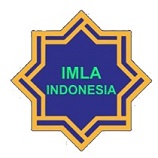KEBEBASAN WANITA PADA TEKS “WARDAH AL-HĀNĪ” (1908) DALAM ANTOLOGI CERPEN “AL-ARWĀH AL-MUTAMARRIDAH” KARYA JUBRĀN KHALĪL JUBRĀN (KAJIAN SOSIOLOGI SASTRA)
Abstract
Women and emancipation are two things that can not be separated, both are like two sides of the same coin. One form of women's emancipation is a freedom of determining a spouse. This research aims to describe the several forms of women's freedom of determining a spouse in short story of Kahlil Gibran entitled Wardah Al-Hānī based on literary sociology theory of Rene Wellek and Austin Warren. The methodology used to realize that aim is descriptive qualitative. The results reveal that women's freedom of determining a spouse is divided into two perspectives, one relates to the opinion of the character in a story and other determined by his behaviors. In the first side, the character has an opinion that the real happiness in the life only can be brought by love. So, she must choose the man she loved. And in another side, the women's freedom is shown by the way she left her legal husband and went to the other beloved man to make her happiness life.
Keywords
women's freedom, determining a spouse, Wardah al-Hānī
Full Text:
PDFDOI: https://doi.org/10.20961/cmes.10.1.19868
Refbacks
- There are currently no refbacks.
Copyright (c) 2018 Jurnal CMES

This work is licensed under a Creative Commons Attribution-NonCommercial-ShareAlike 4.0 International License.
| Copyright of CMES ISSN 2085-563X (print) and ISSN 2502-1044 (online) CMES Journal is licensed under a Creative Commons Attribution-ShareAlike 4.0 International License. | CMES (Center of Middle Eastern Studies) Print ISSN: 2085-563X Online ISSN: 2502-1044 Website: https://jurnal.uns.ac.id/cmes/index Email: cmes@mail.uns.ac.id Published by: Arabic Literature Department, Faculty of Cultural Science, Universitas Sebelas Maret Ir. Sutami Street, No. 36A, Surakarta, Jawa Tengah 57126 Phone: +62 822-4000-2313 |















